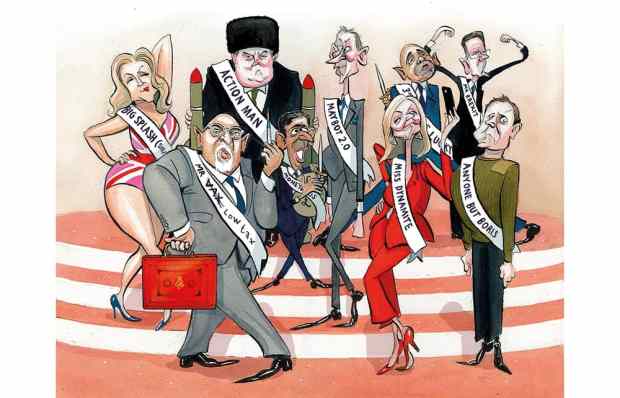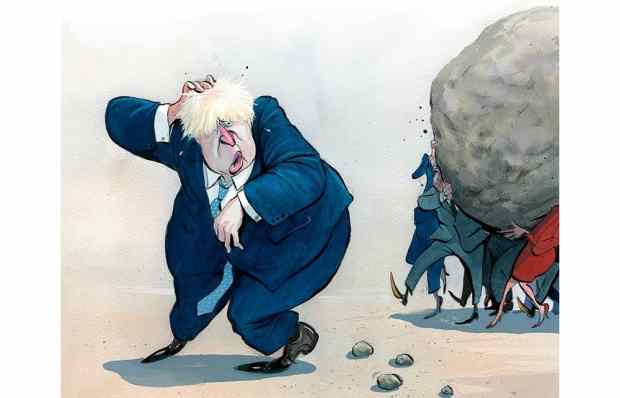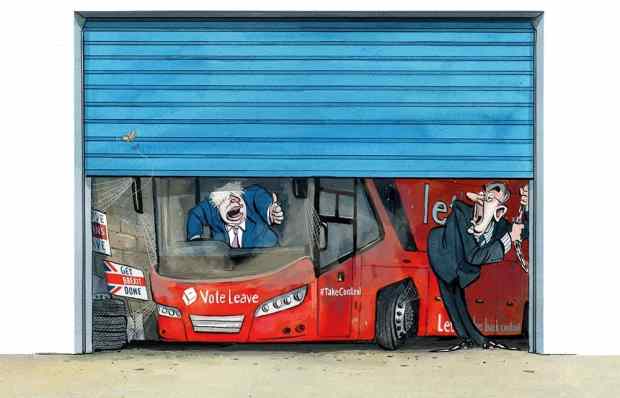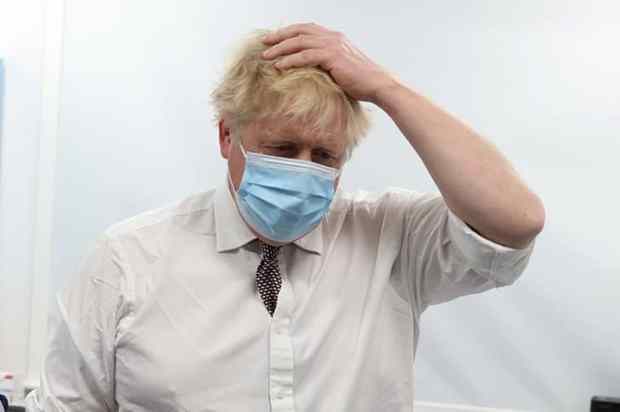The Tory party is in a deeply emotional state. Remain-supporting MPs cry tears of rage when they discuss the referendum. Bitter emails and text messages have been exchanged. Leave-supporting MPs have been accused of unleashing dark forces that they cannot control, of putting immigrants in Britain at risk. Yet the leadership candidates who have so far emerged seem strangely united in their vision for post-Brexit Britain. All want to heal the divide between rich and poor that the referendum has exposed.
It is tempting to concentrate only on the division in the party, the fear that David Cameron’s resignation has injected even more poison into the Tory system than either the downfall of Margaret Thatcher or the Maastricht debate. Post-referendum, Remain and Leave Tory MPs still meet in separate groups. Some think this indicates that the leadership fight could become the most divisive in recent history.
Yet it is remarkable how much agreement there is between the candidates who have declared so far. All accept that the referendum result shows that the economic system is not working well enough for those at the bottom, and talk about social mobility. Stephen Crabb and Sajid Javid have launched a ‘blue collar’ bid. Boris Johnson and Michael Gove seek to make the Tories the party of the ‘aspirational underdog’. Theresa May promotes a broad Conservatism. Uniquely, none are from the party’s right wing.
This is a new type of Toryism, the next stage of David Cameron’s revival of the party’s ‘one nation’ tradition. ‘There’s not a mainstream candidate who won’t adopt the Cameron agenda,’ claims one Remain supporting minister. An intellectual unity exists below the surface bitterness. This broad agreement on domestic policy makes the personality of the leader vitally important.
Boris Johnson is the current frontrunner. In a Tory leadership election this is a dangerous position to occupy. The force of the anger against him among Remainers has shocked many of those campaigning for him. Many believe Johnson’s support for Brexit was cynical positioning for a future leadership bid. ‘He who wields the knife shouldn’t wear the crown,’ a Cabinet minister tells me. ‘It sets a bad precedent.’ Another MP frets that Johnson focused too much on immigration during the campaign and ruined the reputation he built up as a liberal Tory while he was mayor of London.
But in the referendum, Boris avoided saying that he wanted immigration reduced to a specific number. Instead, he stressed the importance of democratic control. At one Leave rally he even talked about his support for an amnesty for illegal immigrants — a position he might not be repeating now that Sir Lynton Crosby is running his campaign.
In the coming days, Boris will come under pressure to set out his vision for post-Brexit Britain. I understand that he and Michael Gove have three principles. First, they want democratic control over immigration policy — a rejection of the EU principle of free movement of people. Second, they no longer want the UK to be subject to the European Court of Justice. Third, they want access to — but not membership of — the single market.
The case for Johnson is simple. He campaigned for Brexit, and Brexit should be implemented by someone who thinks it is best for the country. He is a winner — twice elected mayor of a Labour city and crucial to Leave winning a referendum that most expected it to lose by a double-digit margin. He has an ability to connect with voters that is unmatched by anyone else in British politics right now. Tory pragmatists, including several Remain ministers I’ve spoken to, acknowledge that he goes a long way to neutralising Ukip as a threat to the Tories. It would be perilous for them to select someone who had campaigned against Brexit as their leader because Farage and co could claim that referendum voters had been betrayed. They would shout that it was all an establishment stitch-up and that people needed to vote Ukip to make a proper Brexit happen.
Perhaps the most important reason to think that Johnson would be a good Prime Minister is his ability to delegate. Even in normal times the job of Prime Minister is simply too big for someone who wants to manage every-thing, as Gordon Brown proved. We are living in extraordinary times. Depending on your point of view, we have either embarked on a great national endeavour or are in a state of national emergency. No peacetime Prime Minister will be busier than the next one. Any one, no matter how able, who tried to manage everything, would fail spectacularly.
Johnson knows how to hire talented people and let them get on with it. He proved this during his two terms as mayor of London. He does not micro-manage everything. This style of management is common in the best-run global businesses, but not so much in politics, which tends to attract those who want to control everything themselves. Johnson adopted the same approach on the Leave campaign. As one insider puts it: ‘Boris is a great front man.’
By choosing to run with Gove, he has already demonstrated that he intends to persist with this approach. Both assume that Gove will work on the outline of the renegotiation and help set the government’s broad political direction. One longtime friend of Johnson claims Boris is so self-confident intellectually that he has no problem surrounding himself with clever people. Indeed, the evidence suggests he would be temperamentally inclined to restore Cabinet government.
The referendum campaign changed Boris and Gove. For a start, they bonded; Gove came to see Boris as someone who could not only become Prime Minister, but would also be a very good one. Quite a shift from two-and-a-half years ago when Gove told a dinner party that Boris didn’t have the ‘gravitas’ necessary to run a country and a row ensued. I am told that Gove was impressed by Johnson’s calmness when he came under sustained personal attack and by his ability to present the Leave argument.
The campaign also changed how the two think about politics. During last year’s election campaign, Gove gave a speech about how the Tories must be ‘warriors for the dispossessed’. Then, at the Conservative party conference that year, he talked about the ‘undeserving rich’. This campaign pitted Gove against the new establishment (which is dominated by the banks) and accentuated this aspect of his political philosophy. He has none of the knee-jerk deference to the City that has characterised so many Tories since the Big Bang.
Johnson’s detractors argue that the referendum campaign put him at odds with his record as London mayor. But the referendum was actually of a piece with Boris’s concern for the low-paid; as mayor he was one of the first Tories to favour a living wage. A staple of his referendum stump speech was that the ‘EU is a corporate stitch-up’ contributing to the growing pay gap between CEOs and workers. As one of Boris’s closest allies puts it: ‘We need a government that understands this: in the last 15 years if you had capital you made out like a bandit. If you had to rely on your own labour, you didn’t.’
Another pillar of a Johnson government would be social mobility. Johnson has signed up Dominic Raab, one of Gove’s ministers at the Department of Justice, whose great passion is this subject. Johnson has been a longtime supporter of selection in schools, one MP supporting Boris tells me to expect ‘a grammar school offer’ too.
But what is striking is how similar Johnson and Gove’s theme is to that of Theresa May. Her former chief of staff Nick Timothy, who will be involved in her leader-ship bid, is now running the New Schools Network, which is trying to boost the number of free schools and make Gove’s education reforms irreversible.
If you want to understand Theresa May, you need to read the speech she made to a Conservative Home conference three years ago. This was the first time that she roamed across the policy landscape; and the moment when Westminster realised she was serious about putting herself forward as a leadership candidate one day. The speech attacked ‘vested interests in the private sector’ and set out how ‘we need to give opportunity, by reforming capitalism and making sure our economy works for all of us’. Such passages would fit into any of Gove or Johnson’s recent speeches.
If Johnson’s challenge shows that he could unify the party despite having led the Leave campaign, May’s demonstrates that she could be a Brexit prime minister even though she supported Remain. Amber Rudd, who took on Johnson in the ITV debate, quipping that he was not the man you’d want to drive you home, has now told colleagues that she thinks the next Tory leader probably has to be a Leaver, and that almost certainly means Boris. That view presents May with a serious problem.
Not many of her Cabinet colleagues are enthusiastic about her bid. She is neither clubbable nor particularly collegiate and some secretaries of state fear that, unlike Johnson, she would try to micro-manage everything in No. 10. Her best chance is that Brexit plunges the country into crisis.
Stephen Crabb, the Work and Pensions Secretary, is the dark horse of this race. His argument is that the referendum revealed how the white working class simply does not believe that the system is working for them. So it is an asset that he was brought up by a single mother on a council estate. Sajid Javid, his running mate, is the son of a bus driver. Crabb thinks social mobility has stalled. He says that Britain needs to ‘smash down barriers of disadvantage.’ Privately, the Crabb team claim that they are doing better than expected. One enthusiastic member of the campaign even thinks that Crabb could eclipse May and present himself as the most viable alternative to Boris Johnson. If this happens, there is bound to be debate about whether he is ready for the move to No 10. He has been Work and Pensions Secretary for a few months. Prior to that, he was Secretary of State for Wales.
British politics is in flux right now. The next Prime Minister needs to be an optimistic, outward-looking globalist. Someone who understands that post-Brexit, Britain must head out into the world and strike trade deals with as many countries as possible. How Britain responds to the challenge of leaving the EU will set the direction of our politics for at least a generation.
At the same time, the Labour party is in meltdown: it is almost impossible to see how the dispute between Jeremy Corbyn and the bulk of the parliamentary Labour party can be resolved.
Whatever the result of this leadership contest, Toryism is changing. Now its focus will be on mending the gap between rich and poor and making the system better for those at the bottom. The question for the party is this: which candidate is best placed to deliver both this agenda and Brexit?
The post So will it be Boris? appeared first on The Spectator.
Got something to add? Join the discussion and comment below.
Get 10 issues for just $10
Subscribe to The Spectator Australia today for the next 10 magazine issues, plus full online access, for just $10.
You might disagree with half of it, but you’ll enjoy reading all of it. Try your first month for free, then just $2 a week for the remainder of your first year.















Comments
Don't miss out
Join the conversation with other Spectator Australia readers. Subscribe to leave a comment.
SUBSCRIBEAlready a subscriber? Log in